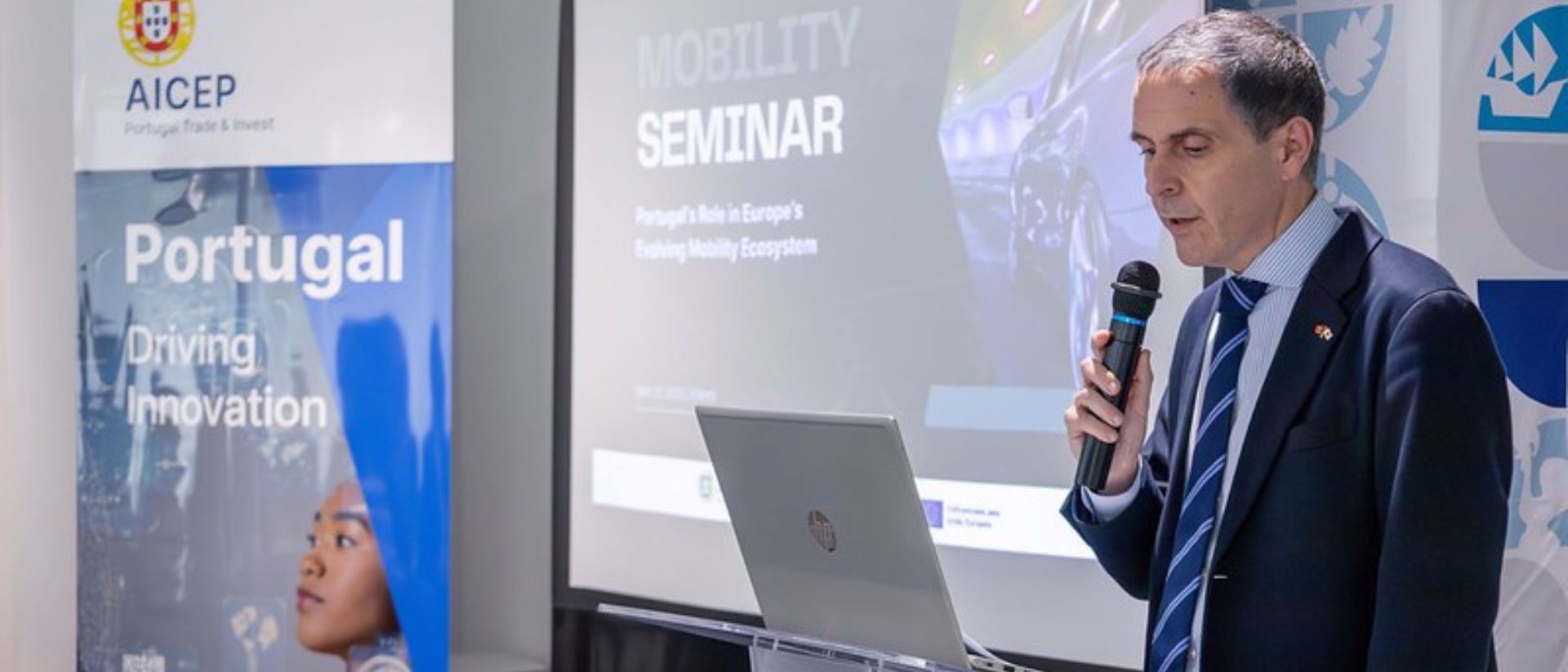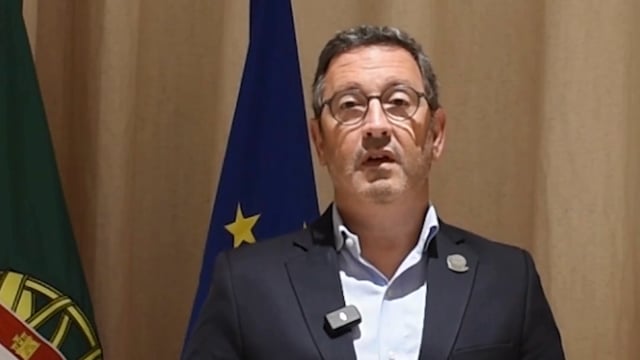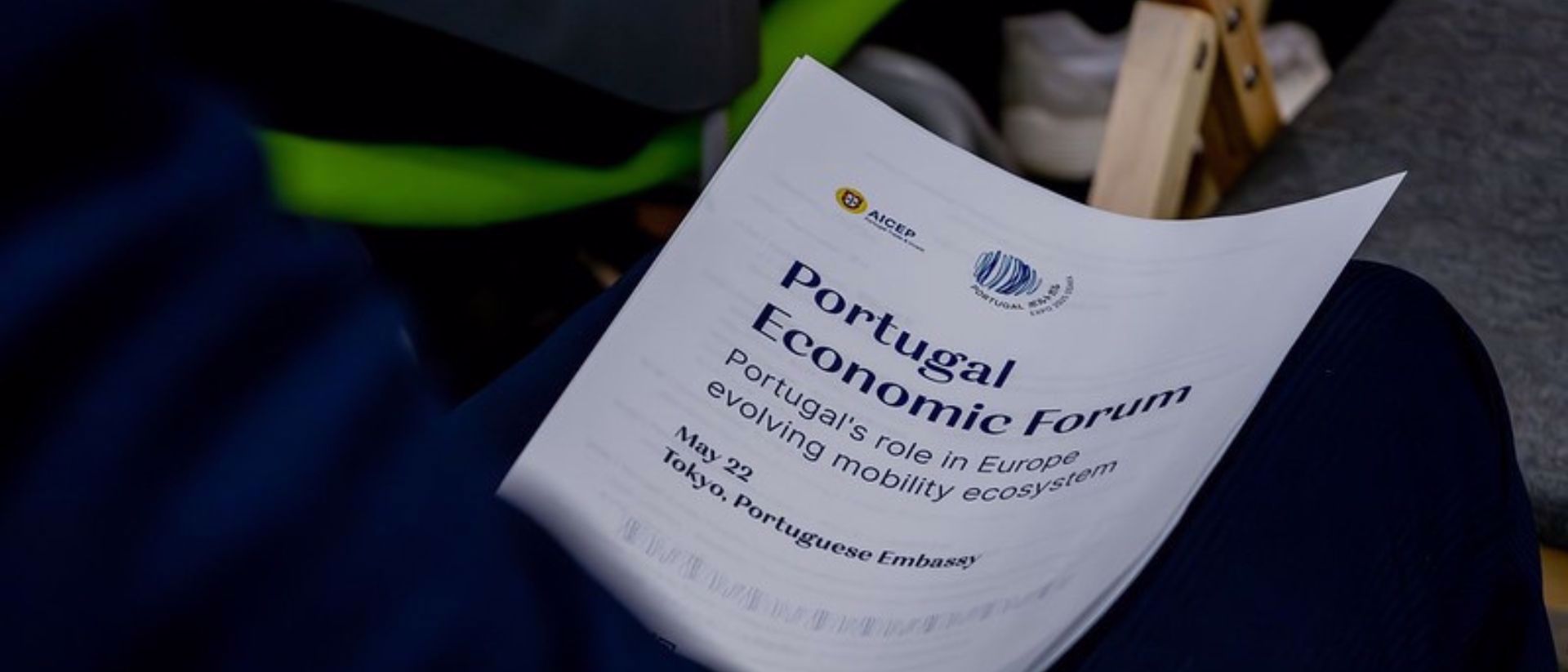As part of Portugal’s participation in Expo 2025 Osaka, AICEP – the Portuguese Trade & Investment Agency – is spearheading a comprehensive economic programme in Japan, positioning the country as a key partner in innovation, sustainability, and investment.
One of the first initiatives was the Mobility Seminar – Portugal's Role in Europe's Evolving Mobility Ecosystem, held on 22 May at the Portuguese Embassy in Tokyo. The event brought together public and private stakeholders from Portugal and Japan to showcase strategic investment opportunities in the automotive and two-wheel sectors.
The seminar aimed to strengthen Portugal’s positioning in the Japanese market by highlighting not only the country’s role in vehicle assembly and component manufacturing but also its leadership in engineering, software development and innovation.
One of the first initiatives was the Mobility Seminar – Portugal's Role in Europe's Evolving Mobility Ecosystem, held on 22 May at the Portuguese Embassy in Tokyo. The event brought together public and private stakeholders from Portugal and Japan to showcase strategic investment opportunities in the automotive and two-wheel sectors.
The seminar aimed to strengthen Portugal’s positioning in the Japanese market by highlighting not only the country’s role in vehicle assembly and component manufacturing but also its leadership in engineering, software development and innovation.

With presentations from key national clusters involved in the electrification and decarbonisation of mobility—such as MOBINOV and BIKINNOV – Bike Value Innovation Centre – Association—as well as a senior representative from Woven by Toyota, the technology subsidiary of Toyota Motor Corporation focused on future mobility solutions, the event underlined opportunities for investment and collaboration. It reinforced Portugal’s image as a strategic hub for the automotive and two-wheel industries in Europe.
Alongside the Portuguese Ambassador to Japan, Jerónimo Gilberto, the session featured Paulo Rios de Oliveira, AICEP Board Member, Miguel Malheiro Garcia, AICEP Director in Tokyo, and Mónica Moreira, AICEP Commercial Director – underscoring Portugal’s commitment to strengthening bilateral economic relations with Japan.
The session welcomed around 50 participants from a wide range of companies, including global names such as Shimano, Panasonic Automotive, SoftBank, Toyota, Teijin, Hino Motors, AESC, Honda and Yamaha, among others.
Portugal is increasingly recognised as a European leader in bicycle manufacturing and green energy production, further strengthening its role as a key destination for investment and partnerships in these sectors. This initiative contributed to enhancing Portugal’s visibility in Asia, in line with the growing success of the Portugal Pavilion at Expo 2025 Osaka, which has already attracted over 400,000 visitors.
Upcoming seminars will focus on Life Sciences (1 July), Defence (8 August), and the Blue Economy (24 September).
Watch Paulo Rios de Oliveira’s remarques.
Alongside the Portuguese Ambassador to Japan, Jerónimo Gilberto, the session featured Paulo Rios de Oliveira, AICEP Board Member, Miguel Malheiro Garcia, AICEP Director in Tokyo, and Mónica Moreira, AICEP Commercial Director – underscoring Portugal’s commitment to strengthening bilateral economic relations with Japan.
The session welcomed around 50 participants from a wide range of companies, including global names such as Shimano, Panasonic Automotive, SoftBank, Toyota, Teijin, Hino Motors, AESC, Honda and Yamaha, among others.
Portugal is increasingly recognised as a European leader in bicycle manufacturing and green energy production, further strengthening its role as a key destination for investment and partnerships in these sectors. This initiative contributed to enhancing Portugal’s visibility in Asia, in line with the growing success of the Portugal Pavilion at Expo 2025 Osaka, which has already attracted over 400,000 visitors.
Upcoming seminars will focus on Life Sciences (1 July), Defence (8 August), and the Blue Economy (24 September).
Watch Paulo Rios de Oliveira’s remarques.





